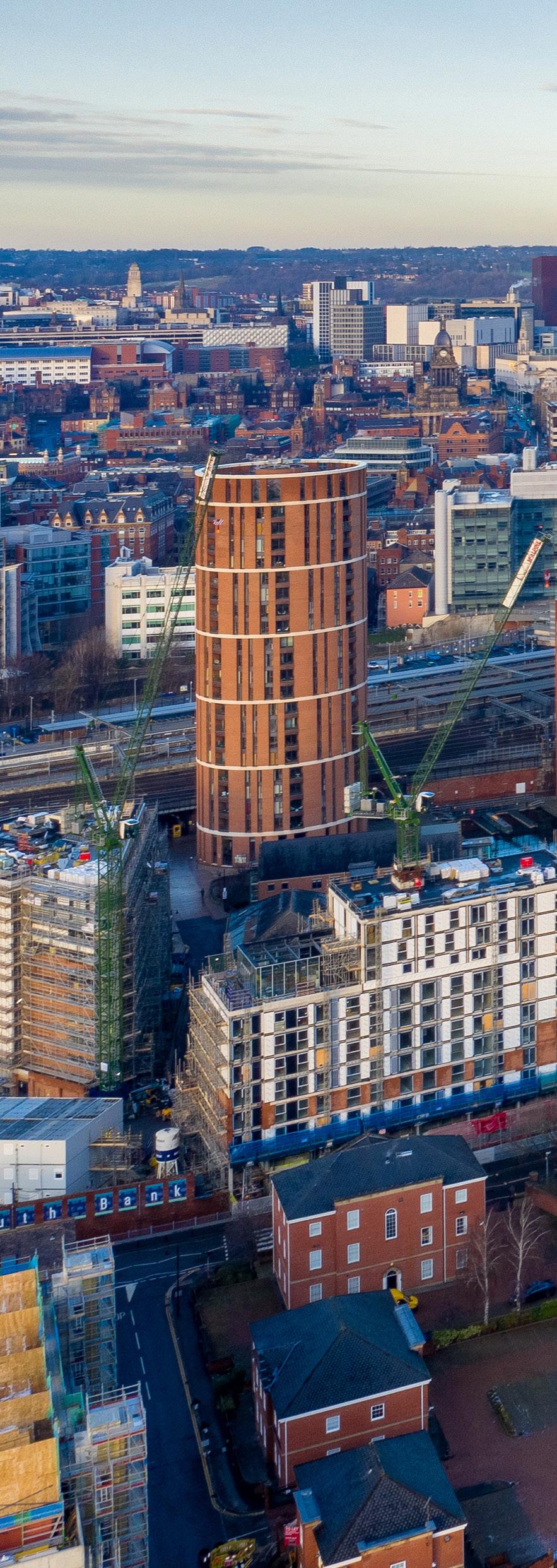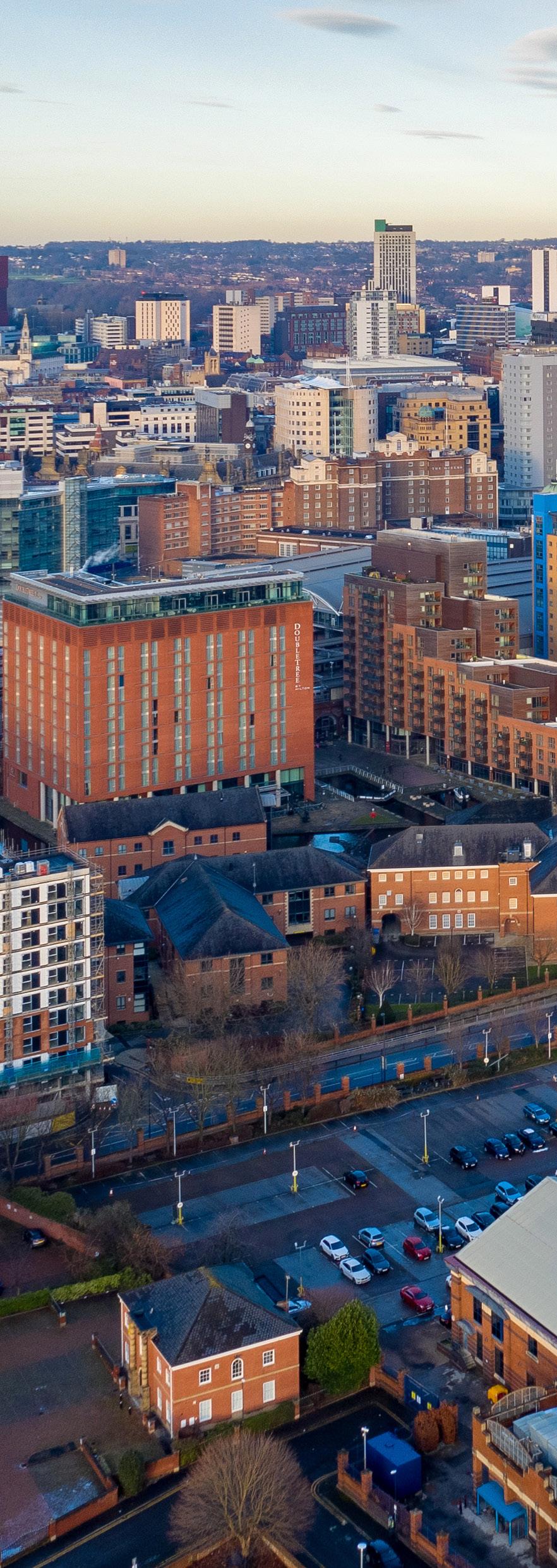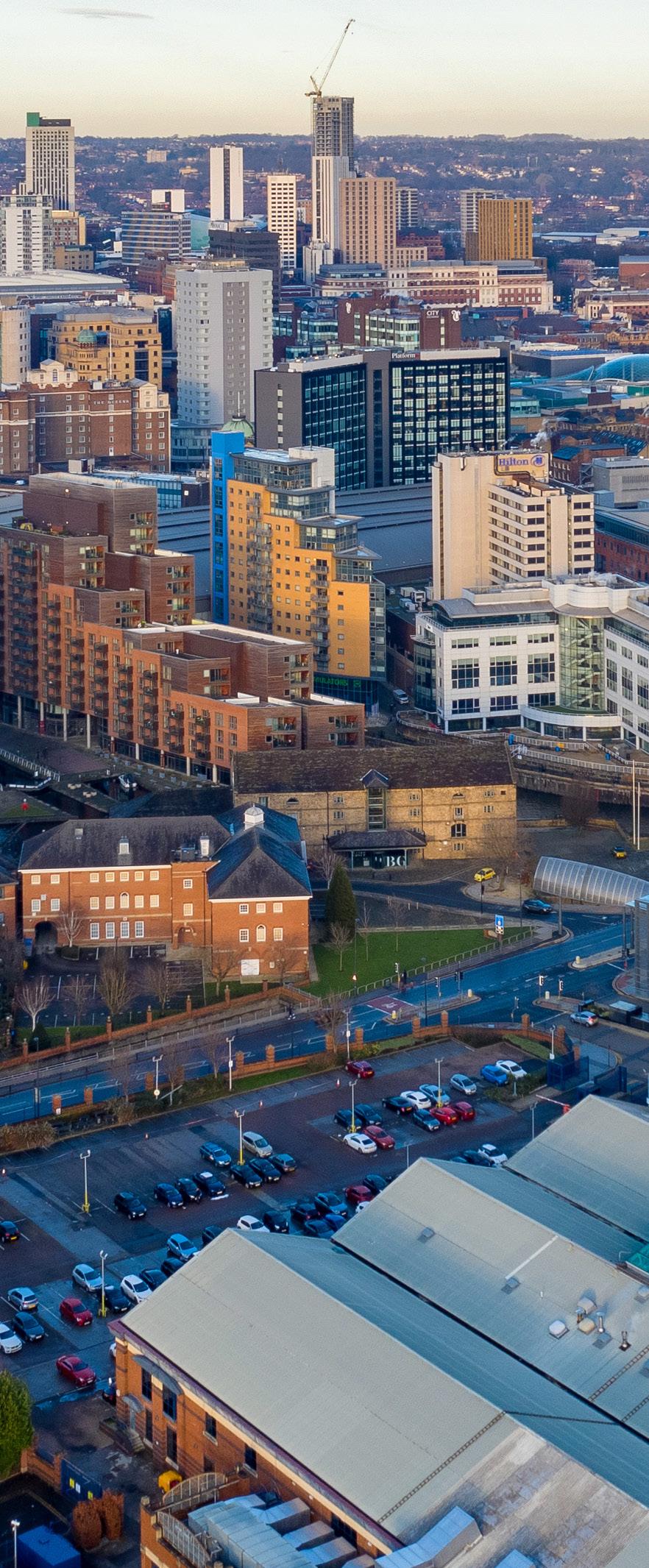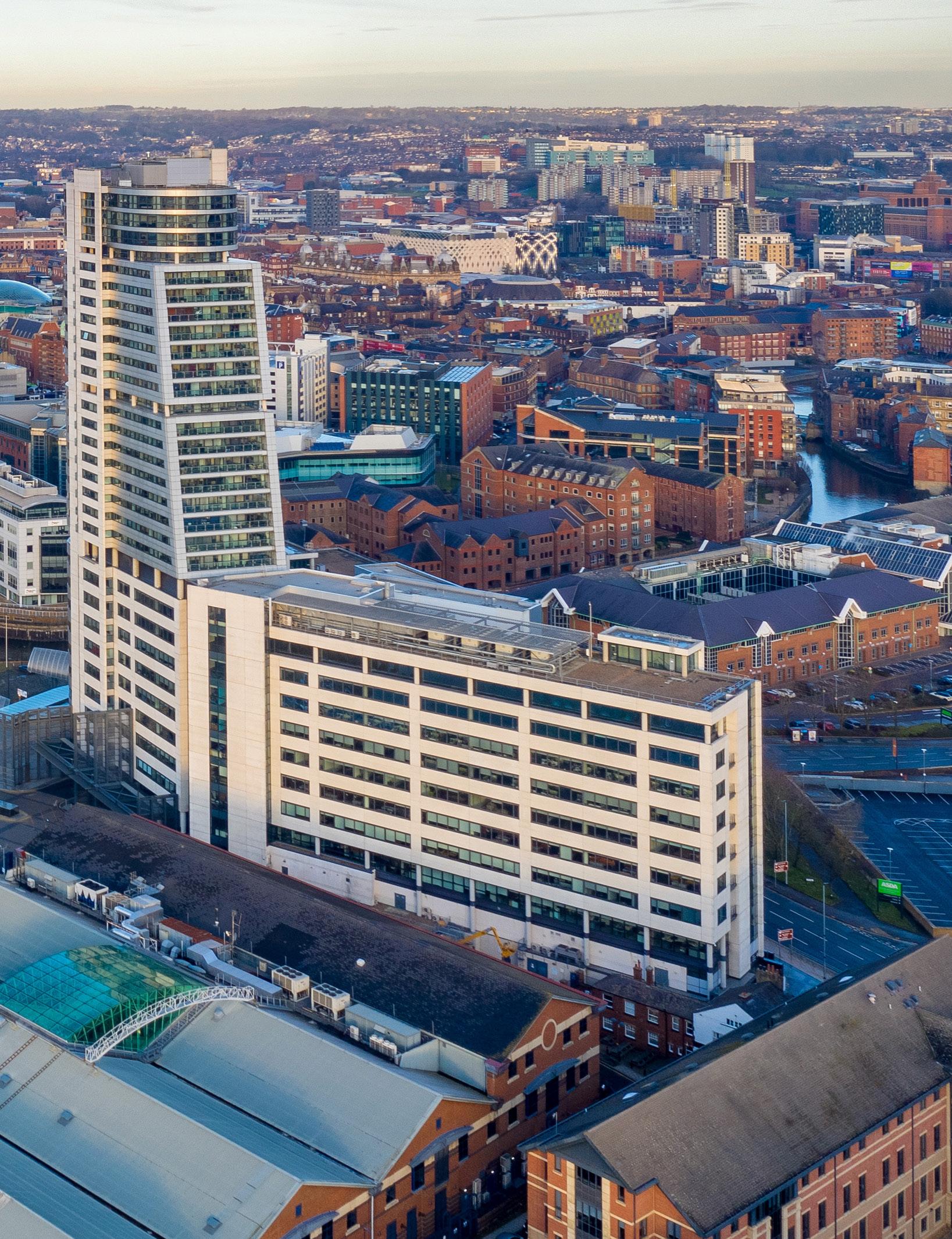
3 minute read
Leeds City Council Delivering Home Energy Efficiency Upgrades
by Chelsea Bailey
Leeds City Council is working with some of the UK’s biggest firms to address barriers that prevent households from accessing energy-saving green home upgrades.
Advertisement
The council has been part of a major national partnership, the Local Low Carbon Accelerator (LLCA) initiative, to explore how the public and private sectors can work together to speed the uptake of insulation and other technologies that make homes healthier, more environmentally friendly, and cheaper to live in.
It was established by four members of the Prime Minister’s Business Council – Lloyds Banking Group, Octopus Energy, National Grid, and Shell.
Working with the LLCA, Leeds City Council is demonstrating a tenure-agnostic city-wide retrofit scheme, starting with 500-1,000 ableto-pay owner-occupied and private rental homes, as a case study to examine replicable delivery and policy solutions.
The city-wide retrofit programme is hoped to be scaled nationally
Housing Industry Leaders spoke to George Munson, Senior Project Manager at Leeds City Council about the council’s work with the LLCA. He said that: “We were keen to focus on something which we felt had been overlooked for a while, this was middleincome households. We wanted to create a compelling offer to middle-income households which would be relevant to Leeds but could be scaled nationally.”
Like many other UK cities, Leeds is aiming to deliver home energy efficiency improvements at scale. It has designed an area retrofit scheme but was struggling to identify suitable financing options to attract private capital, until this partnership.
The collaboration is supporting Leeds to accelerate its delivery of a city-wide retrofit programme. Enhancing retrofit efforts in the city provides many benefits to locals, highlighting this, George explained: “Some of the benefits of this project include a warmer and more liveable home, and that this work can be done without it being a lot of hassle upfront.”
The Net Zero Homes Plan will identify current housing challenges
To retrofit the 306,000 homes in Leeds, George revealed that the bottleneck is persuading the households who don’t live in council housing that retrofit is something that can be made personal to them.
He expressed that to have a real impact on reaching the UK’s net zero targets and benefitting the local community, retrofitting must be a consistent focus: “The challenge in retrofitting is that you must do it to every home, and we don’t directly control a lot of housing in Leeds. We need to cross the threshold and persuade families that retrofit is something that is relevant to them.”
On how Leeds City Council is persuading these households to consider housing retrofit, George stated that it is crucial to provide them with a case: “We’ve learned over time that there is no point in trying to persuade people unless you have got something to offer them to deliver it. Therefore, our communications have focused on projects that we’re running, and how we can make retrofitting for example more relevant to people in their lives.”
Leeds City Council’s involvement in the LLCA initiative supports the aims of its Net Zero Homes Plan, unveiled earlier this year, which set out blueprints for how the council could work with partners to install low-carbon heating and tackle heat loss from the city’s residential buildings.
George said that the Net Zero Homes Plan is helping Leeds to decide what the priorities are for the city: “The Net Zero Homes Plan was something that we’ve had in our work programme for a while, and it’s a chance for us to be clear about what the situation is in Leeds, in terms of the current work going on and what the gaps are. Therefore, we can figure out what challenges and opportunities there are.”

Leeds City Council is using sustainable technologies to decarbonise its housing stock

In addition to the LLCA initiative, Leeds has other programmes in place to tackle the housing crisis, focus on decarbonisation, and benefit its residents.
One of these is its Council Housing Building Programme, which sees the council working to deliver 1,500 high-quality, new build council homes across the city over the next five years.
The council declared a climate emergency in 2019, and as part of this commitment, it has decided to reduce its carbon emissions by making these homes more energy-efficient.
These homes feature energy-efficient hot water and heating systems, high levels of insulation such as double glazing, water-saving devices, and solar panels where possible.
On this, George highlighted the way that the council is focusing on decarbonising its housing stock by explaining how homes built through the Council Housing Building Programme are built without gas: “We decarbonise the homes from day one by using heat pumps rather than gas heating. Initially, they cost more to build but they become cheap for tenants to run in the future.”
Partnerships like this one are crucial in ensuring that homes are being built for the future rather than just for today, and meeting not only the UK’s net zero targets but meeting current housing demand.










